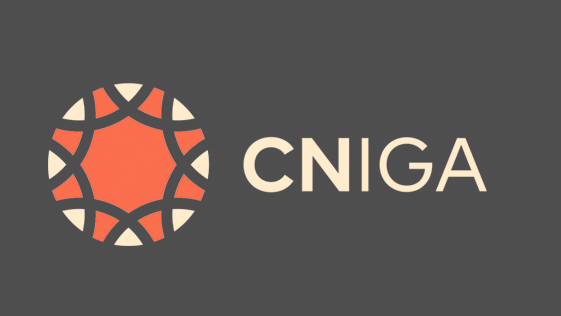 On a farm, late summer and early fall are a time to harvest the seeds that were sown in the spring. With patience and persistence, those seeds turn into plants that mature, and some bear fruit. This metaphor aptly describes the legislative session thus far for CNIGA’s priority bills. In some cases, years-long efforts have produced real results.
On a farm, late summer and early fall are a time to harvest the seeds that were sown in the spring. With patience and persistence, those seeds turn into plants that mature, and some bear fruit. This metaphor aptly describes the legislative session thus far for CNIGA’s priority bills. In some cases, years-long efforts have produced real results.
In my last column, I reported that AB 1935, authored by Assemblywoman Blanca Rubio (D-West Covina), was making its way through the legislative process. I can now proudly report that AB 1935 was passed by the Legislature and Governor Newsom signed it into law last month. This bill will shrink, by $83 billion, what the acting California state auditor characterized as an excessive surplus of $170 million in the Indian Gaming Special Distribution Fund (SDF), that the state has been collecting from tribes by suspending payments into the fund for a two-year period.
As a refresher, the SDF is one of two funds some gaming tribes pay into, and has legally prescribed uses, including the “actual and reasonable” cost of gaming regulation. We believe that this is a fair reduction that will leave ample monies for the state to conduct its regulatory function of tribal gaming.
AB 1935 is the second successful CNIGA-sponsored legislation to address significant issues with the SDF uncovered in 2019 and 2022 state audits. Together, these two laws show real progress in tackling state abuse of the SDF and should be looked at as a multi bill effort to protect the SDF. The first was a bill passed and signed in last year’s legislative session, AB 553, which addressed the misuse of SDF funds for staff time at the Bureau of Gambling Control. The 2019 audit revealed that the Bureau was using SDF monies to pay staff for non-tribal gaming regulatory activity, which is against the law, and AB 553 instituted time tracking procedures at the Bureau.
CNIGA will continue to look at options for protecting the SDF and ensuring that it is used for its lawful and intended purposes.
We can also report major progress on our other priority bill for this session, SB 549, authored by Sen. Josh Newman (D-Fullerton), the Tribal Declaratory Relief Act, which would give tribes standing in state court to ultimately rule on whether California’s commercial card rooms are offering illegal games.
SB 549, which had been sidelined in Assembly committees since last year, finally had a full hearing and a vote in the key Assembly Governmental Organization Committee in early July. I’m pleased to write that it passed with a 15 to 1 vote, with five members abstaining at that hearing. The lopsided vote was all the more stunning in that its outcome was far from ordained, due to a major pressure campaign from the state’s commercial card room interests and that the committee’s chair, Assemblywoman Blanca Rubio herself abstained and gave no recommendation on the bill.
However, it was heartening to watch the superiority of the tribal argument win the day and watch lawmakers who expressed sympathy for the commercial card rooms vote for this bill simply because it is good policy. This issue has persisted for more than a decade, as commercial card rooms have increasingly added games and practices that amount to house-banked, Nevada-style card games, which is a practice granted exclusively to tribes in the California Constitution.
Tribal complaints about the issue have been met with inaction by the state, and tribes, as sovereign governments have lacked standing in state courts. SB 549 gives tribes standing for a single case in state court to decide whether the games and practices at commercial card rooms are legal.
After clearing that key committee, the bill was released from the Assembly Appropriations Committee’s suspense file in mid-August on an “A roll call” vote, which means that minority Republicans on the committee voted to release this bill along with majority Democrats, and as of press time, it is now on the Assembly Floor awaiting a vote of the full chamber. I will provide an update on the ultimate fate of this bill in my next column.
In addition to our gaming bills, CNIGA takes positions on non-gaming bills when our members request that we take a membership vote on whether to support a specific bill. This session, we have endorsed three non-gaming bills. Those bills and their status are:
- AB 3017, authored by Assemblymember Gregg Hart (D-Santa Barbara), which seeks to build upon the state’s current practice of offering advanced payments by providing tribal governments with the opportunity to receive up to 25% of state contracts and grants upfront. This bill has passed the Legislature and is awaiting action by the governor.
- AB 1863, authored by Assemblymember James Ramos (D-Highland), which would make improvements to the Feather Alert legislation, a notification system for missing and endangered indigenous persons in California. This bill has passed the Legislature and is awaiting action by the governor.
- And AB 2138, also by Assemblymember Ramos, would establish a three-year pilot program under the Department of Justice granting peace officer authority to certain tribal police officers on Indian lands and elsewhere in the state under specified circumstances. It awaits a vote on the Senate Floor at press time.
Looking forward, CNIGA is still engaged in continuing conversations on ways to increase funding to tribes who receive funding from the Indian Gaming Revenue Sharing Trust Fund (RSTF). CNIGA is looking to turn this discussion into priority action in the coming legislative session.



